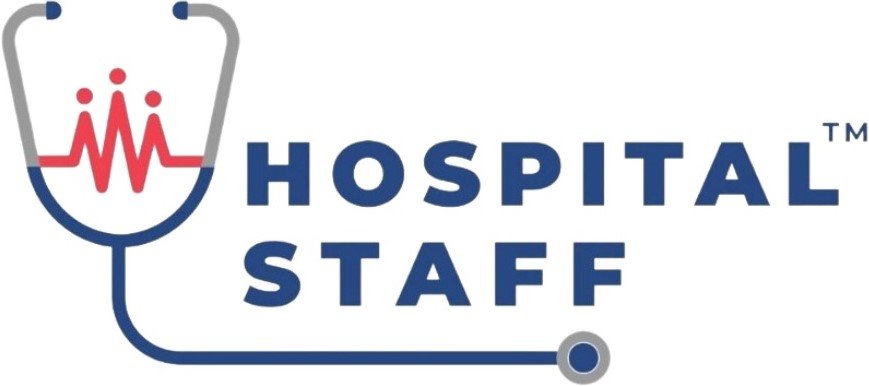In any healthcare setting, whether it’s a hospital, clinic, or emergency care facility, the road to patient recovery and the smooth functioning of operations does not rely solely on one individual. It is a team effort where every healthcare team member plays a vital role. While doctors are often the most recognized members of the healthcare teams, the contributions of nurses, allied health professionals, and support staff are just as essential. Each healthcare team member has a distinct set of roles and responsibilities that complement the others. A well-functioning healthcare team ensures that patient care is not only effective but also holistic, addressing various aspects of health, from diagnosis and treatment to rehabilitation and emotional well-being. Together, the healthcare team works cohesively to ensure positive health outcomes, efficient healthcare delivery, and patient satisfaction. In this blog, we will explore the critical roles and responsibilities of healthcare team members and discuss how collaboration among them leads to better care.
Roles and Responsibilities of Healthcare Team Members
-
- Doctors
Doctors are often seen as the leaders of the healthcare teams, given their expertise in diagnosing illnesses and prescribing treatments. Within the healthcare teams, doctors are responsible for performing examinations, ordering tests, interpreting medical results, and making crucial decisions regarding patient care. They develop treatment plans, perform surgeries when necessary, and oversee the progress of patients’ recovery. Well, they are also responsible for coordinating with other healthcare team members to ensure that the treatment plan is implemented effectively.
-
- Nurses
Nurses are the backbone of the healthcare teams. Their roles and responsibilities as healthcare team members are multifaceted and vital in both direct and indirect patient care. Nurses monitor patients, administer medications, provide treatments, assist with procedures, and offer emotional support to patients and their families. They act as patient advocates, ensuring that the patient’s concerns are heard and that their care is delivered as prescribed. In addition to direct care, nurses are also responsible for maintaining accurate patient records, updating healthcare providers about any changes in a patient’s condition, and managing care plans.
-
- Allied Health Professionals
Allied health professionals, such as physical therapists, occupational therapists, speech therapists, dietitians, and respiratory therapists, contribute specialized knowledge and expertise to the healthcare team. These healthcare team members focus on aspects of care that promote recovery, rehabilitation, and prevention of further health issues. For instance, physical therapists play a key role in helping patients recover mobility after surgery or injury, while occupational therapists assist with activities of daily living for individuals with physical or mental impairments. The roles and responsibilities of healthcare team members in allied health fields often involve direct patient interaction, creating individualized treatment plans, and tracking progress. Their expertise enhances the overall care plan, ensuring a comprehensive approach to patient recovery and well-being.
-
- Pharmacists
Pharmacists are essential healthcare team members, responsible for managing the safe and effective use of medications. They work closely with doctors and nurses to review prescriptions, advise on dosage, monitor for potential drug interactions, and educate patients on proper medication use. Pharmacists also ensure that patients receive the right medications at the right time and counsel patients on side effects and storage guidelines.
-
- Support Staff
While they may not be directly involved in patient care, support staff are essential to the smooth functioning of any healthcare facility. These healthcare team members include administrative assistants, medical billers, receptionists, cleaners, and maintenance workers. They ensure that the healthcare environment remains clean, organized, and functional, allowing healthcare providers to focus on patient care. Administrative staff handles scheduling, patient records, and billing, while maintenance workers ensure that equipment and facilities are in proper working condition. These support staff play a significant role in maintaining the healthcare infrastructure, which is critical for delivering high-quality care.
The Importance of Collaboration in a Healthcare Team
Effective healthcare is never the result of a single individual’s effort. It is the result of coordinated efforts from the entire healthcare teams. Collaboration is essential in ensuring that each patient receives comprehensive care. When healthcare team members communicate and collaborate, they can deliver more accurate diagnoses, more effective treatments, and better patient outcomes. For example, a patient recovering from surgery will likely need the expertise of multiple healthcare team members, including doctors, nurses, physical therapists, and dietitians. The doctor may focus on the medical aspects of the recovery, while the nurse monitors the patient’s vitals. By working together, these professionals can address all aspects of the patient’s health, improving recovery times and reducing complications. Similarly, the roles and responsibilities of healthcare team members in emergency care or critical care settings rely heavily on teamwork.
What is the Healthcare Team’s Impact on Patient Satisfaction?
Collaboration and communication within a healthcare teams also directly impact patient satisfaction. When patients feel that they are receiving comprehensive, coordinated care, they are more likely to feel confident in their treatment and recovery process. They are also more likely to have positive experiences with the healthcare system. Effective teamwork means that patients receive timely care, appropriate interventions, and education about their health conditions. This leads to better health outcomes and an improved patient experience, fostering trust between healthcare providers and patients.
Conclusion
The healthcare team is the cornerstone of modern medical care, and its effectiveness depends on the collaboration and communication of all its members. Doctors, nurses, allied health professionals, pharmacists, and support staff all contribute unique skills and knowledge, ensuring that patients receive the best care possible. The roles and responsibilities of healthcare team members extend beyond direct patient care, with each professional playing a part in maintaining the operational efficiency of the healthcare facility. Understanding the value of each member of the healthcare teams are crucial in recognizing how a team-based approach improves patient outcomes, reduces errors, and enhances patient satisfaction. Whether in a hospital, outpatient setting, or long-term care facility, the healthcare teams work together to deliver the highest standard of care.

